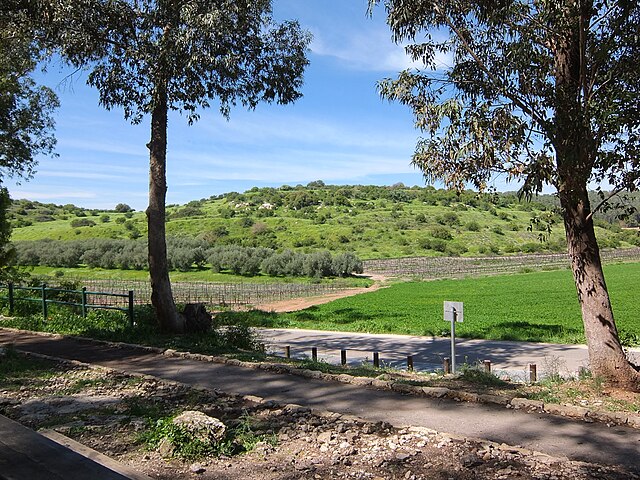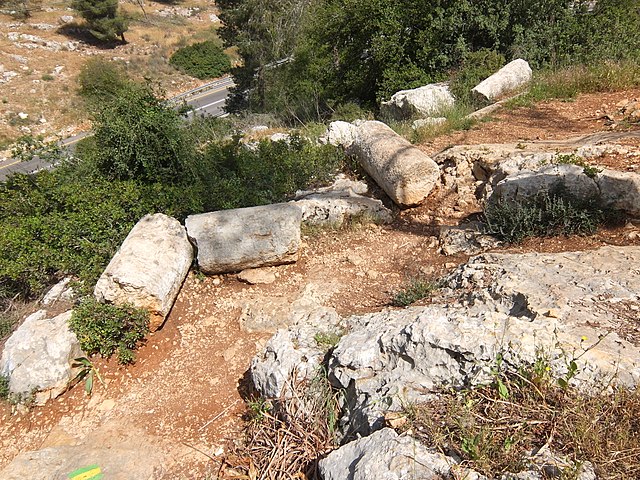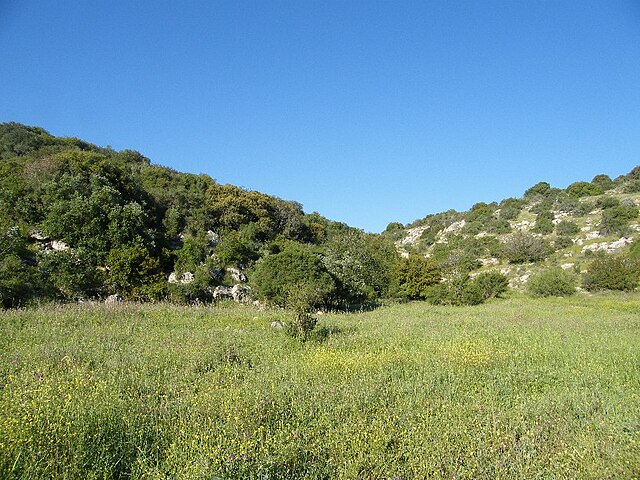The Maccabees, also spelled Machabees, were a group of Jewish rebel warriors who took control of Judea, which at the time was part of the Seleucid Empire. They founded the Hasmonean dynasty, which ruled from 167 to 37 BC, being a fully independent kingdom from 104 to 63 BC. They reasserted the Jewish religion, expanded the boundaries of Judea by conquest, and reduced the influence of Hellenism and Hellenistic Judaism.
Wojciech Stattler's "Machabeusze" ("The Maccabees"), 1844
What are believed to be the Maccabees' relics – kept in the Maccabees Shrine – are venerated in St. Andrew's Church, Cologne, Germany.
Judea or Judaea is a mountainous region of the Levant. Traditionally dominated by the city of Jerusalem, it is now part of Palestine and Israel. The name's usage is historic, having been used in antiquity and still into the present day; it originates from Yehudah, a Hebrew name. Yehudah was a son of Jacob, who was later given the name "Israel" and whose sons collectively headed the Twelve Tribes of Israel. Yehudah's progeny among the Israelites formed the Tribe of Judah, with whom the Kingdom of Judah is associated. Related nomenclature continued to be used under the rule of the Babylonians, the Persians, the Greeks, and the Romans. Under the Hasmoneans, the Herodians, and the Romans, the term was applied to an area larger than the historical region of Judea. In 132 CE, the Roman province of Judaea was merged with Galilee to form the enlarged province of Syria Palaestina.
Judea
The Judean hills
Old Roman road in Judea
Mediterranean oak and terebinth woodland in the Valley of Elah, southwestern Judea






